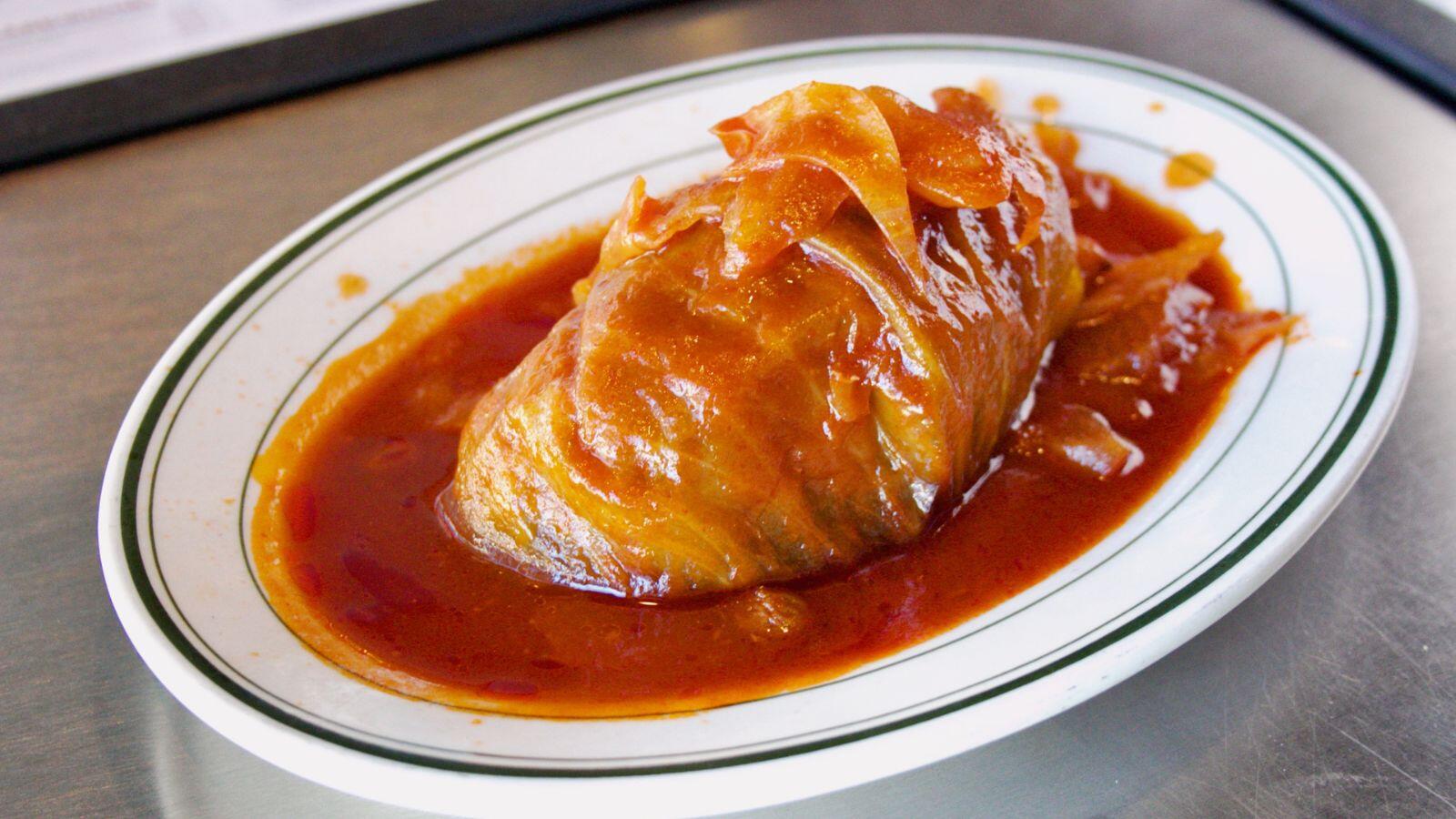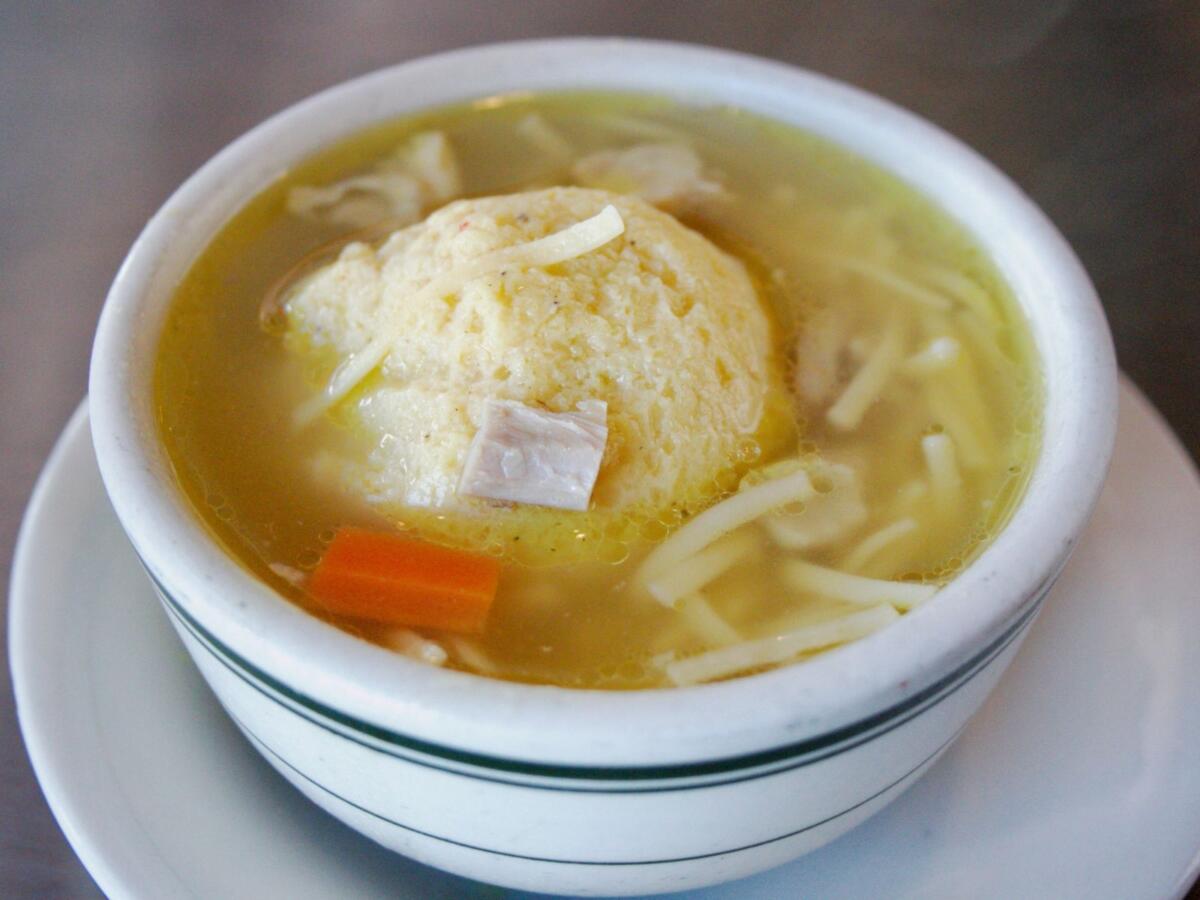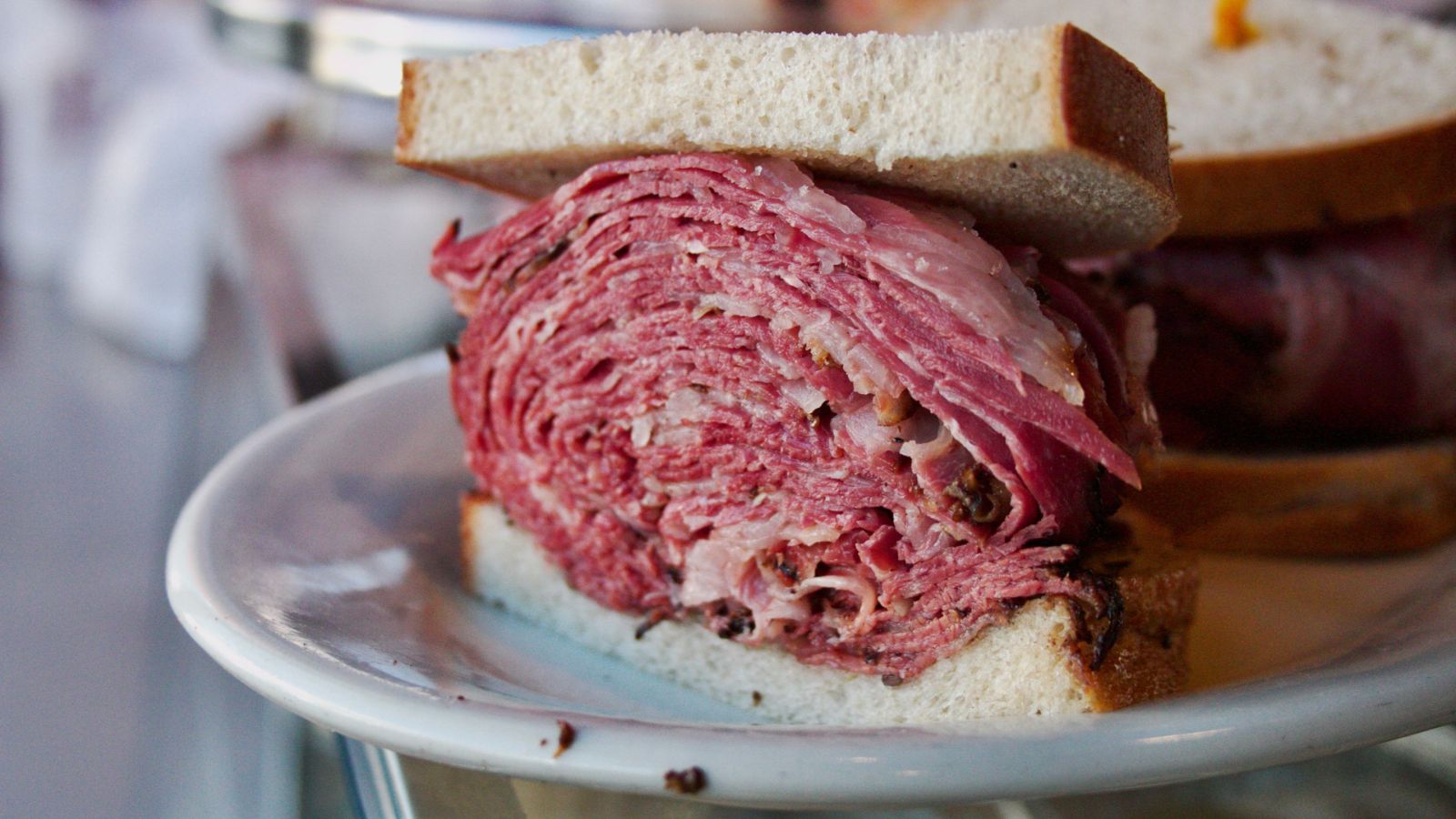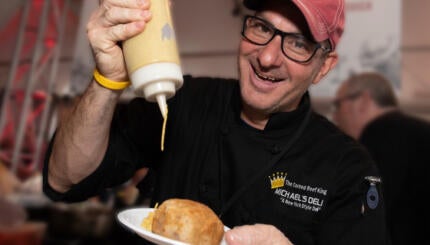When Liebman’s Delicatessen opened on 235th Street in 1953, the Bronx was still sometimes called “the Jewish Borough.” More than half a million Jews lived between Mott Haven and Riverdale, and according to the 70-year-old deli’s website, they were served by 100 kosher delis. Today, Liebman’s is the last one standing.
“I ask myself a lot: ‘why are we the one that survived?’” Yuval Dekel, who has owned the deli for 20 years, told The Nosher. “Certainly because we’re in Riverdale, which is still a Jewish community.”
He surveys the restaurant, where nearly all 60 blue naugahyde seats are occupied by neighborhood regulars over 60, noshing on pastrami to the strains of ‘50s jukebox hits. “We’re a deli that has regular New York City resident customers. We’re not a tourist destination.”
Dekel, one of the youngest people in the room, took a circuitous route to becoming a deli man. Born in Haifa in 1978, he arrived in the Bronx two years later with his father, who immigrated with hopes of becoming an entrepreneur. A business broker helped the family find Liebman’s, which had foundered under a string of owners after Joseph Liebman sold it in the late ‘50s.
The Nosher celebrates the traditions and recipes that have brought Jews together for centuries. Donate today to keep The Nosher's stories and recipes accessible to all.
Though Dekel’s father (also named Joseph) was of Romanian descent, he knew little about the Ashkenazi foodways of New York. “I don’t even think he knew about delis,” Dekel said. “In Israel, there’s no deli culture.” Joseph Dekel added Israeli dishes like falafel and hummus to the menu, but took pains to preserve the deli classics, too.
For his part, Yuval Dekel was a metalhead. He was the drummer for Irate, a well-loved New York City thrash band, touring up and down the East Coast, throughout Europe and Japan, and playing at iconic downtown clubs like CBGB in the ‘90s.
“It was pretty hardcore,” Dekel laughs. “Very serious moshing going on. Quite a different environment from this.”
But during his entire stint as a metal drummer, Dekel also supported himself by working as a baker at Amy’s Bread and the original U.S. location of Le Pain Quotidien, developing a serious commitment to artisanal foods. When his father died in 2002 and Dekel took over Liebman’s, his first priority was the quality. He wanted to make sure that every dish on the menu, from sandwiches to stews, got its due.
“One thing that differentiates us from — let’s say Katz’s — is we pay a lot of attention to not just the pastrami,” Dekel said. “Don’t get me wrong, I spent years figuring out how to make our own. But there’s this whole other side to us, which is basically a full-service kosher diner.”

Liebman’s excels in the kinds of homey dishes that tend to be afterthoughts for the best-known pastrami pushers. Stuffed cabbage, stewed in a sweet-and-sour sauce and piled with melting onions and plump raisins, falls apart at the slightest pressure from a fork. On Fridays, Dekel serves cholent, the slow-cooked Shabbat stew.
That’s not to say the deli classics can be missed. Dekel began curing his own pastrami several years ago, after the number of high-quality suppliers had dwindled. The deli slices it thin so that slivers of the smoked meat’s dark crust are evenly interspersed on a sandwich. On the Liebman’s Favorite platter, pastrami is piled high on an open-faced slice of rye, accompanied by fries — thick-cut, pleasantly greasy shards of potato — and kishke (stuffed derma) slathered with brown gravy. It’s an unbelievably hefty plate of food that reminds you the object of a Jewish deli is excess.
Daintier deli classics abound. Liebman’s tender matzah balls float in a rich broth slicked with beads of schmaltz. Hebrew National franks sizzle and blister on a foil-lined griddle in the front window, ready to be garnished with sinus-clearing brown mustard, sauerkraut, coleslaw or — a Liebman’s favorite — a scoop of potato salad. Old timers pick at artfully arranged cold cut platters of sliced tongue, corned beef and kosher salami.
Homemade knishes are of the circular variety, bearing little resemblance to the squared-off “Coney Island” knishes provisioned by wholesalers to hot dog carts across the city. Like all knishes, they are dense starch-delivery systems. But a Liebman’s knish is well-seasoned, and its crust is flaky and pastry-like.
With all of his attention focused on food, Dekel says he struggled with the business side of the operation originally. But a loyal base of customers helped him through his mistakes, and the deli has hit its stride again, getting attention from critics and influencers, and even making an appearance on “Anthony Bourdain: Parts Unknown” in 2014. Dekel is planning to open a Westchester County location this year, marking the first expansion of Liebman’s in its seven-decade history.

It seems only right that Liebman’s should be the last deli in the Bronx. A mid-century time capsule, it was reinvigorated by Israeli cooking and by Dekel’s do-it-yourself spirit.
“In some cases, being the last one standing doesn’t mean you were the best,” he says. “But I happen to think that we deserve it.”



